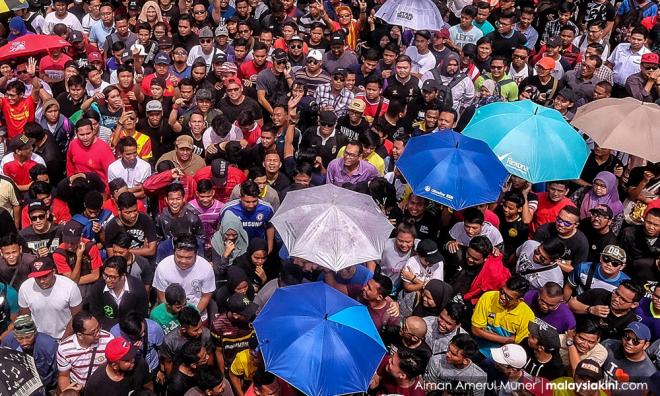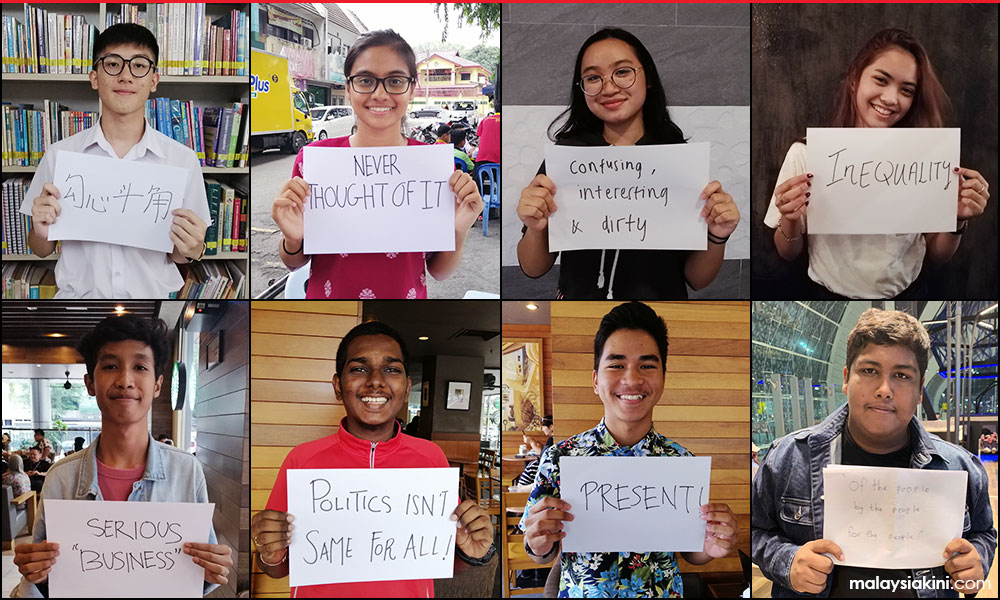
It has been a bumpy 2020 year thus far. Amid an increasingly chaotic international system, the unprecedented Covid-19 pandemic, and sudden change in government as elaborated in an earlier writing, we now have former youth and sports minister Syed Saddiq Syed Abdul Rahman recently announcing his intention to form a youth-centred political platform.
He described the initiative as an attempt to alter the existing political setting of feudal mindsets and corrupted patronage. Dismantling bad practices originating from such rooted structures as well as ending established monopolies on power are top priorities. The idea has generated public interest with various personalities weighing in on this proposal.
Many, especially veteran politicians, have disapproved of the move and downplayed its significance, including his former mentor Dr Mahathir Mohamad. It, however, gained open-minded support from opponents such as Science, Technology and Innovation Minister Khairy Jamaluddin, who viewed it as a catalyst to rejuvenate the political scene with more youth representation and candidates across the board.
This "manifesto in progress" intends resetting Malaysia's political affairs in the aftermath of the "Sheraton Move" crisis that confused the rakyat. The proposed youth party wants to be an alternative to help make sense of the ongoing events, although will find itself encountering many sceptical Malaysians unwilling to risk striving for change once again.
The challenging task ahead for bold youths such as Syed Saddiq and his team is to translate interest in politics from mere coffee shop opinions and online forum discussions into a proper voting bloc, especially the sizeable young urban migrators returning to hometowns to vote. They must amplify their appeal to a nationwide audience motivated towards having more political changes.
Dealing With grassroots
Some credit must be attributed to the older generation of statesmen and leaders for laying foundations that encourage such shifts in mentality. Youths today are more aware, vocal, and not easily impressed thanks to higher levels of education, sufficient domestic stability, and infrastructures developed by those elder figures during their era of governance.
Perhaps an immediate obstacle for this youth party would be to obtain a solid consensus across the numerous youth entities and student groups. It will not be easy managing critical viewpoints and diverse beliefs; however the prospect of working together with a wide pool of talented persons is worth having quarrels early on rather than have them fester later.
Next would be the challenge of resources. Any new party would initially struggle with its electoral viability, even more so to penetrate semi-urban constituencies and rural seats that are mostly conservative, Malay-bumiputra majority areas. Here, plenty of electoral experts and seasoned operators are needed to organise against other heavily experienced and well-funded party machinery.
Another test revolves around its objectives. How does a youth party clearly justify its existence in an already crowded chessboard? How then does it strategise to establish its brand into the mainstream distinctively from other youth wings available in other parties? How to convince potential recruits and disillusioned voters to consider their ideas and policies? Can it withstand criticism?
Equally, it faces a personality baggage issue. Syed Saddiq's track record in campus advocacy is unconvincing apart from debating. His performance as a minister and first-term member of Parliament was too brief to be appraised, and having a perceived elitist background and select 'inner circles' hesitates his peers from endorsing him. Likewise, the creation of the Youth Power Club when he was a minister caused hostilities with other influential youth associations.
A youth party might also run into difficulties of getting full-time commitments from its supporter base as youngsters try balancing between stabilising their livelihoods, academic duties, and party fieldwork.
If the party somehow makes it into power, adapting policymaking skills quickly is vital to deal with office politics from senior officials and the bureaucracy of civil servants throughout different agencies. Can public administrators genuinely cooperate with youngsters as their superiors?
Having better innovation
Robust investments, patience and wisdom from key stakeholders are needed to produce a youth roadmap that ensures its relevance to survive and inclusively expand its reach. The youth party must tackle growing unemployment due to automation and global recession, as well as misinformation in social media.
Huge anticipation awaits on what solution it offers to stop economic uncertainties, heal fractured national identity, detoxify political culture, and ease societal anxieties.

Initially, this youth party must win over the impending first-time voters because of the constitutional amendment reducing the age for eligible voters from 21 to 18 that was passed in Parliament mid last year. Building momentum from Parlimen Digital's popularity and reiterating its position on futuristic policies are cool and clever ways to revive a sense of optimism amongst the rakyat.
Such exciting vibes are important to gather all segments of youths into a united direction and speak to each other constructively. However, it cannot allow itself to be manipulated as tokenism or window dressing. Thus, financial independence is crucial not to serve enriching special interests but to seriously boost socio-economic capacities of the next generation of rakyat.
Besides that, the youth party ought to construct its framework to shrewdly take small victories such as engaging young scholars overseas and resolve the long-standing postal vote dilemma. It should also look at emulating the pioneering work done by Rafizi Ramli at Invoke that is tech-savvy and research-driven to establish a strong party volunteering system.
In addition, they should have in-house training programmes that provide political literacy and campaign strategies like the "Sekolah Politik" (political school) model. It should learn to groom its own batch of young politicians with diplomacy and integrity instead of converting wearied civil society activists or famous artists into "shortcut" political players as to how other parties typically do.
Thinking ahead, the youth party must be sensible enough to negotiate seats with a stronger coalition. Do not be too naive to split the votes as a spoiler nor be too fanatical to consider being a kingmaker as a third force.
It's a long-term goal to work with the realities yet reflect a new spirit of politics that seeks collaboration over competition. A democratic reconciliation across partisanship via linkages between youth wings can spearhead efforts at enhancing our institutions.
Drastic Shifts Yearned
Citing Indonesia, Thailand, and France's experimentation with youth parties, plus taking inspiration from competent young premiers in Finland and New Zealand can be alluring arguments although tricky to contextualise. This youth party must not be emotionally hyped by trends, instead overcome the fundamental equation unique to Malaysia, which is the ethnoreligious factor.
Traditional-styled politics of cash bribery, racist taunts, egoistic feuds, scandalous rumours and idiotic stunts will gradually die out once the demand for it ends and replaced with more pertinent topics to be frankly discussed like women's rights and roles, climate change, mental health, aging population, vulnerable communities, et cetera. That requires crafting a conducive narrative that is sincerely cosmopolitan.
For decades, Malaysia suffered from the problem of lacking a succession plan because of entrenched discrimination and ruthless nature of party politics. Only when identity politics fades away from the system can a healthier concept of youth step in to provide better choices of quality leadership.
A firm youth-centric agenda needs to be exemplified to minus the zero-sum attitude and add win-win engagements that uplift the whole democratic process.

GE14 proved that youths should never be underestimated at the ballot, and indications are that Malaysians, in general, can eventually move on from iconic figures to embrace a multicultural collective.
Millennials consisting of Gen Y want to be heard and represented by their own equals that grasp layered nuances and the present zeitgeist. They reject being 'handled' and patronised by Gen X or baby boomer politicians as shown with the Veveonah Mosibin bullying incident by a couple of deputy Ministers.
Notwithstanding, the arriving youth party must consciously refrain itself from evolving into an extremist faction or inclined to populist tactics as seen with emerging movements abroad.
Youths are at a crossroads to prove themselves worthy of meaningful value that sets themselves apart in earnestly repairing democracy, promoting good governance, and building a more positive political culture.
Nothing changes unless divisive lines are resolved. It will be our time once we come to terms with that.
HALMIE AZRIE is a research executive at the Democracy and Governance Unit, Institute for Democracy and Economic Affairs (Ideas). - Mkini
The views expressed here are those of the author/contributor and do not necessarily represent the views of MMKtT.


No comments:
Post a Comment
Note: Only a member of this blog may post a comment.